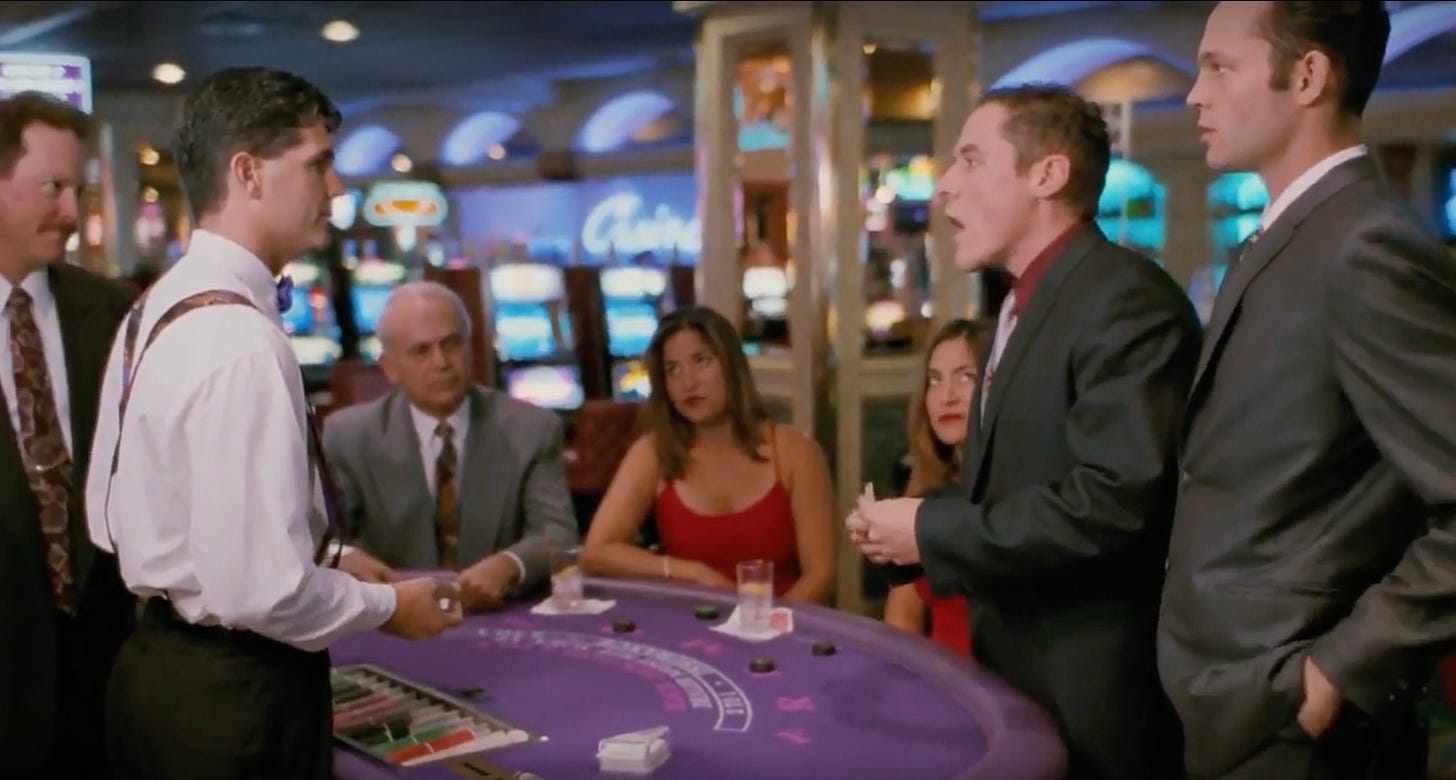Double Down!
“So, I'd like to move on to talk about our Bitcoin strategy. We're going to continue to pursue a strategy which offers our investors spot exposure with leverage to Bitcoin.” – Michael Saylor
In the 1996 cult classic comedy Swingers, famed actor Jon Favreau plays a down-on-his-luck comedian named Mike Peters. Having just moved to Los Angeles from New York and fresh off a difficult breakup with his longtime girlfriend, a depressed and unemployed Peters is coaxed by his more charismatic friend Trent Walker (played by Vince Vaughn) to accompany him on a road trip to Las Vegas. Upon arriving on the Strip, Peters and Walker find their way to the Stardust Hotel and Casino, where Peters awkwardly approaches a blackjack table with $300 in cash – a sum which represents an embarrassingly uncomfortable percentage of his total personal liquidity.
In an iconic scene that is as hilarious as it is cringeworthy, Peters soon discovers that he is at a $100 minimum bet table. Having already puffed out his chest, he is unable to walk back his bravado and clumsily antes up one of his three precious chips. As the dealer flings the cards around the table, Peters is dealt a five and six of hearts. The standard and well-known “rules” of blackjack call for a doubling of one’s bet in such circumstances because any face card would result in a total of 21 – an unbeatable hand. What one should do and can afford to do are often entirely separate things. Upon the urging of Walker, Peters succumbs to social pressure once again and flips a second chip on the table. After being dealt a seven of clubs (not terrible, but decidedly NOT a face card), Peters watches with disbelief as the dealer lucks out with a 21. Reeling from this devastating blow, and now relegated to the low stakes table, Peters takes no comfort when Walker utters his now-famous line, “I’m telling you, baby, you always double down on 11.”
Games that combine skill with chance – blackjack, poker, or sports betting – introduce many to the important concepts of risk management, investment sizing, and impulse control. They also make excellent fodder for movie scripts and books, offering endless ways to explore edge cases for dramatic and humorous effect. As much as we enjoy a good piece of fiction, there’s no substitute for the entertainment value of life imitating art. Enter, Michael Saylor. The CEO and controlling shareholder of MicroStrategy is doing his best imitation of Peters (gambling recklessly) and of Walker (putting other people’s money where his mouth is). Despite having written about his antics several times before, we are awestruck anew by the entire spectacle.
[Note: no member of the Doomberg team has any position in MicroStrategy and we do not intend to open one anytime soon.]
What Saylor is doing at MicroStrategy is perfectly legal. His strategy and tactics are disclosed in filings, on official company investor calls, and during his numerous public appearances. Nonetheless, disclosure and legality do not negate catastrophic risk, and Saylor is riding high odds of eventually being ejected from the high-stakes table.


